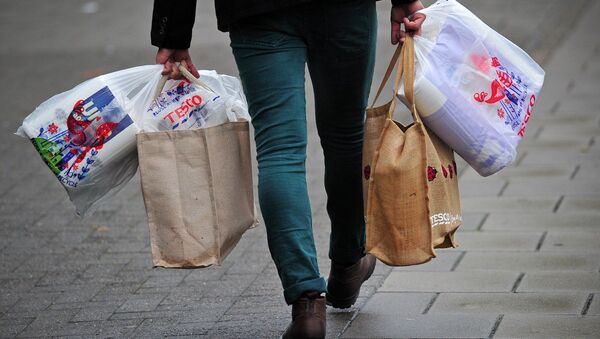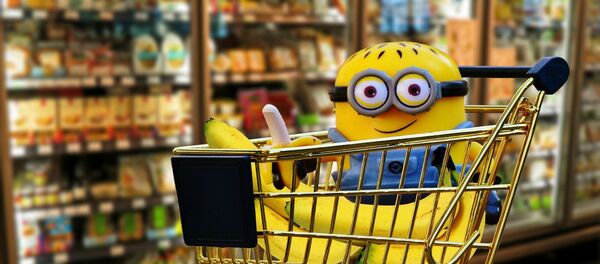The report, titled A Food Brexit: time to get real, and published by the Science Policy Research Unit (SPRU) at the University of Sussex, claiims that a "hard" Brexit could see food prices in the UK rise by up to 22 percent. However, according to the study, even a "soft" Brexit will hit prices, quality, supply and the environment hard.
The UK isn't ready for #Brexit's impact on food, warns a new report from @SPRU at @SussexUni. Read more: https://t.co/Sma7cH1wJt pic.twitter.com/A8BemkxhNt
— Sussex Uni News (@SussexUniPress) July 17, 2017
The study, which was released on July 17, warned that leaving the EU will cause serious problems to the UK food supply chain, and that the government's failure to grasp issues will cause chaos.
In addition, the report has claimed that the risks of a "hard" or "soft" Brexit are heavy because the UK government has no "vision for food or agriculture" within this new "world order."
Report on Food Brexit. Explains why it matters; the issues, hotspots, risks. Public must get engaged. It's our food: https://t.co/enEXNj1vhq
— Professor Tim Lang (@ProfTimLang) July 17, 2017
The research warns that British consumers have not been informed about the "enormous" implications for their food, a third of which comes from within the European Union.
This is the first major report to be published which will examine the impact of Brexit on UK food and farming.
"UK food security and sustainability are now at stake. A food system which has an estimated three to five days of stocks cannot just walk away from the EU, which provides us with 31 percent of our food. Anyone who thinks that this will be simple is ill-informed," Professor Tim Lang, one of the authors of the report said in a recent interview.
"At least the UK entered World War Two with emergency plans. No-one has warned the public that a Food Brexit carries real risks of disruption to sources, prices and quality. There is solid evidence about vulnerabilities ranging from diet-related ill-health to ecosystems stress," Professor Lang added.
Professor Lang also stressed that food is the biggest slice of EU-related regulations and laws, yet so far the government has only sketchily flagged a new Agriculture Act and Fisheries Act in the Queen's Speech.
"The government has provided next to no details on agriculture and fisheries, and there has been total silence on the rest of the food chain where most employment, value adding and consumer choice are made. With the Brexit deadline in 20 months, this is a serious policy failure on an unprecedented scale. Anyone would think they want a drop into the World Trade Organization abyss," he said.
The report has made 16 recommendations, one of which is calling for a "clear, integrated plan for UK food" and clarification on food crossing borders, as well as new legislation for 4,000 pieces of EU law relating to food.
It also notes that new scientific and regulatory infrastructure, replacing at least 30 EU-based bodies, will be required, as well as farm subsidies to replace the EU's Common Agricultural Policy (CAP) and fishing policies "that are more than rejecting the 1964 pre-EU London Convention."
The authors of the report hope that this research will provide a "wake-up call to the public and a government that has little experience of food negotiations."
"Since the Brexit referendum UK food and agricultural policy has been in chaos. Not only have ministers yet to develop a strategy or make decisions, they have not even grasped the issues about which urgent decisions are needed. Unless things change rapidly, and in line with our recommendations, the UK will not only have policy chaos, the food system itself will become increasingly chaotic," the report authors said.




